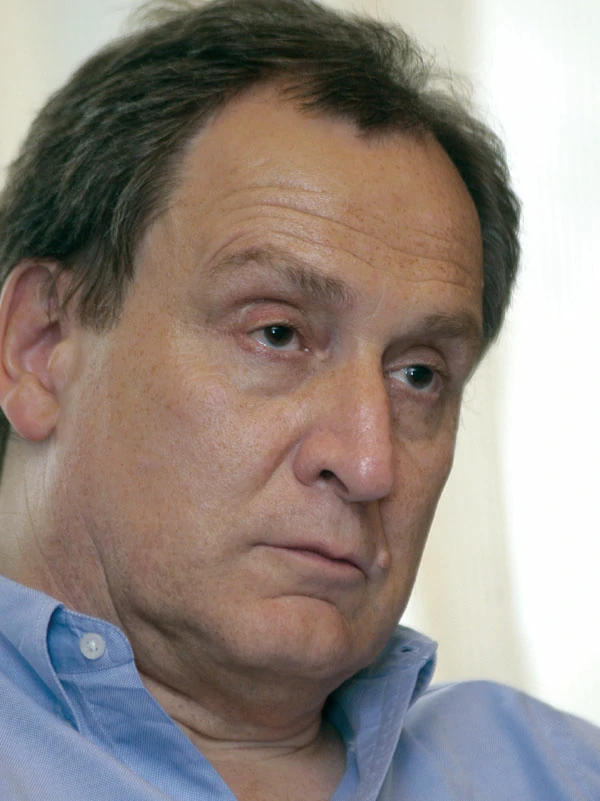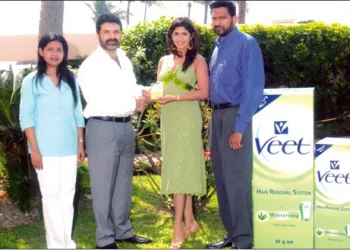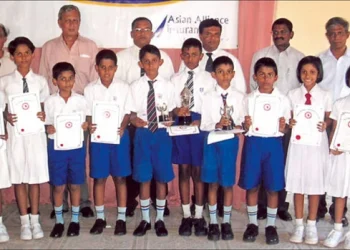
Michael Maedel, Worldwide President of JWT speaks to Harin Fernando about coming to grips with the changing face of account management and other industry niggles.
Tell us about the workshops you are here to conduct?
We had a session for senior JWT managers in order to raise some points about the future of our businesses? how to meet the challenges of the changing environment and to address the changes in account management. Although we are pretty clear about the challenges for planning, account managers have become some of the most endangered species in this business, unless we redefine the role.
It was an initiative by Colvyn Harris and it is a session that JWT conducts once or twice a year. Today we had 50+ of our next generation leaders and it was a very interactive session based on how do we expand our product offer in the non traditional arena.
Because in today’s day and age you don’t need anyone to go to clients and interpret what they are saying, clients are looking for originators of ideas, not interpreters. So I believe there are challenges and the way that account managers have to react to this is that we have to go back to really understanding our clients businesses much more deeply and also to be more savvy in the areas of communication and channel strategic planning. I believe account management has a role to play here, this is just one of the many challenges that the industry is facing.
There is clearly a shift happening from traditional to non-traditional media. The challenge for agencies is in responding to this. One way is for us to broaden our service offer either through acquisitions of agencies in Asia, or through our own businesses such as RMG Connect, which we have rolled out globally.
But it is not just that you have these ‘silos of knowledge’ because anyone can do this. It’s just a question of a cheque and courtesy of our parent group WPP there is funding, but most importantly, once you have these different expertise how can you connect them so that we can really deliver a integrated and seamless solution.
Because what we do not want to do is create a shopping basket of 10 – 15 little companies who will fight internally to see who gets the biggest slice of revenue. Instead we must focus on how we can bundle these offerings.
I believe that the biggest challenge for any client or marketeer given the proliferation of media and new channels appearing everywhere; is deciding the right mix, what is the budget allocation in order to make this mix effective and most importantly what is the idea centric approach we have to take in order to take an idea and execute it via the various channels.
How has account management evolved and changed over the decades?
I think account management has lost its way. If you were to go back and I can go back quite some time, an account manager had an inside out knowledge and understanding of their clients’ business. There was no question even when someone woke you up at 3 AM and asked you “what is the 2 litre bottle of Mr. Kleen doing in a certain trade channel it did not belong to?” You would have to know the answer. Clients expected account people to also work on the brand management side.
Unless you understand what our clients’ business issues are, you will never be able to provide communication solutions to their problems, otherwise you are merely ‘hunting in the dark.’
A traditional media campaign may not be the right solution, if the client’s business issue for example is a trade or sales problem. You have to understand that if it is a sales force issue, with whom do I work to get that done and that level of understanding is really what we have to get back into our profession. We have to realise that the answer to everything is not always a new advertising campaign.
“You Compete For Recognition By Your Peers, But It Is Also Becoming Increasingly Important For Clients.”
Why are countries like Thailand and Malaysia winning at festivals and entries from our region still lagging behind?
I do not believe this to be a question of countries or nationalities. It has more to do with how developed the advertising industry is in certain markets, what role does advertising play in the cultural context and how committed are the agencies to really doing well in festivals, because some agencies clearly put more effort behind this than others.
This also relates to the ‘stage of market’ that you are operating in. If you have markets that are in an ‘early stage’ where the consumers’ relationship with brands is determined by different criteria, you tend to have a different form of communication than what normally scores at festivals.
If you are in an environment where you have to pay six months salary for a washing machine, you want to know what you are going to get for your money, that it is going to be reliable and at the end of the day you need to include very rational and factual arguments.
In comparison there might be other markets where the capital outlay is in a different proportion, so the whole emotional value and the fun factor can override and more often than not in festivals it is criteria such as strong visuals (little copy) that scores high.
On Winning vs. Selling?
There are scam advertisements that agencies just do to win awards, real awards on the other hand are very important to us, because everybody wants to win and the big award shows are simply an industry measurement of how well you have done.
You compete for recognition by your peers, but it is also becoming increasingly important for clients.
If you take the Cannes festival for example, five or six years ago, it was a purely agency based affair but today all the big name brands attend in force. This is because everyone has understood and realised in today’s world of product parity, communication is one of the most decisive factors in building a brand and hence clients are keen to get first hand knowledge of how it is done.
If you were to win an award it is a confirmation to the client that they have done something right. Back in the old day some clients would have said that if a campaign won an award we would take it off air, as it would do very little for our sales. In the meantime I think that everyone has understood that good creative work has a absolute direct affect on sales results and the more better and effective the creativity, the more better it is for everyone involved.
Is ‘through the line’ the future?
I would completely eliminate the concept of ‘above and below the line,’ because what we have now is an ever-growing number of communication channels and the eternal question is what is the right mix of communication channels?
There is nowhere written in the world that a communication programme has to include print or TV. It could just as well be event led, direct marketing led or PR led. So the definition of channels and choosing which ones to be associated with is one of the most interesting debates as we go forward.
What becomes more important than ever, is the importance of the underlying creative idea. Imagine a solar system with the sun (the creative idea) in the middle and then you have the various channels through which you execute the idea. Traditional media advertising is just one of many channels and just like the planets in the solar system it is not superior to any of the other ones.
This requires agencies to think differently, because the traditional approach is ‘lets do some great TV stuff’ and the ‘if we put the key visual in some other channel we will have a integrated campaign’ approach, which is rubbish.
Agencies have to understand that each of these channels can play a bigger role and offers up much greater opportunity than traditional ‘comfortable’ media outlets.
“I Believe There Should Be Freedom Of Expression And Advertisers And Marketers Should Work Within This Freedom And Can Still Communicate Messages Even If You Were To Exclude TV, Press And Radio.”
On Creativity vs. Effectiveness?
I am very clear about this, we are in the business of helping our clients sell more of their product or service to more people, in more places. Creativity is just one of the vehicles to achieve this. But coming up with something that is extremely creative, but is just a waste of time in the market place, is a just a pointless investment. Clients put a huge amount of money behind communication and they are interested in the return on investment and we have a fiduciary duty to deliver this return. Otherwise it is simply an exercise in vanity.
On the recently passed ‘National Alcohol and Tobacco Bill’?
We as a profession are dealing with an increasing amount of restrictions, be it tobacco, alcohol or advertising to children. I am personally of the opinion that every human being is the master of his or her destiny and it is not the role of any government or authority to tell him or her what he or she should or shouldn’t do.
So I believe there should be freedom of expression and advertisers and marketers should work within this freedom and can still communicate messages even if you were to exclude TV, press and radio. I do not believe in any law that bans advertising in any particular sector or industry.
Are marketers guilty of underestimating their audiences?
If they do this they do so at their own peril. Now more than ever, technology has empowered the consumer and this empowerment is leading to a situation where consumers are trying to create their own ideas, they can communicate in real time with others. To underestimate them both in terms of their ability to decipher and read advertising and their ability to creatively respond to communication would be a huge mistake. You only have to read blogs on the internet to discover the creativity involved in purchasing, utilising and providing feedback on any number of products and/or services.
Engaging rural audiences; is the mobile phone the answer?
As you mentioned mobile phones for many reasons is one of the most important media that we can use in order to reach the rural markets best. What we are just seeing is the beginning of a development that has so far been focused on voice and data but is becoming increasingly content rich. I recently read about a new system that allows you to take a photograph of a barcode and the device instantly connects you to the website of the manufacturer. It is this kind of innovation that can change everything around.
This is an ideal scenario for marketers, everyone knows where you are at any given point of the day and this capability to share messages with the consumer is a fantastic opportunity. I think that at the end of the day more than the media channels available, it is the content that sets the tone when it comes to communicating effectively with rural audiences.
Was the JWT name change purely cosmetic?
Around two years ago there was a meeting in Miami and we began the transformation process. We wanted to signal that there is a fresh wind going through the company and break away from certain things in our past and we believed that a name change was a very visible thing to do to this effect.
We used to have the signature of J Walter Thompson and this signified a sense of ‘old fashionedness’ and in addition to this the more practical reason was that when we spoke to clients and our own people around the world we found inconsistencies revolving around our name, in some countries it was ‘Thompson’ and in others it was ‘J W Thompson.’
We realised we needed a consistent brand and the heart of this was a consistent brand name including, consistent values that the company stands for that is understandable to everyone. So the name change was just the cosmetic face of a vast number of changes, in essence an ideological shift.
Advice for someone considering advertising as a career?
If someone were to ask me should I join this industry, the answer would be an unequivocal ‘yes’ because quite frankly we are in the most interesting part of the history of communication.
Never before have so many developments happened in such a short period of time. Most of this is technology driven and the fascinating part is that there is no instruction manual for the future. This is suddenly an open playing field where it is down to peoples’ creativity and curiosity and their ability to venture into a new territory and there will be winners and there will be losers so there could not be a better and more exciting time to be part of all these changes.
Having said that, it is certainly not something for the faint hearted because the challenges are huge and there is a lot of communication out there that starts within our very group. Many of our media agencies our experiencing phenomenal growth and I think they have set their minds on dominating the world.
As we speak there might be someone sitting in a garage in China or a café in Bangalore coming up with the next big thing. Two years ago ‘you tube’ did not exist and what is amazing is the pace of this development.
On 360 ° marketing invading privacy?
I think that the concept of invasion is completely wrong because if you are doing something and I invade that environment your not going to like me for that. Therefore what we at JWT envisage is not interrupting what people are doing, but becoming what they are really interested in. Because if I have something to offer you that you like, then you would welcome it from whatever level of communication the message is transmitted.
It is when consumers feel trapped by commercial messages that they react in an adverse and rebellious manner.





